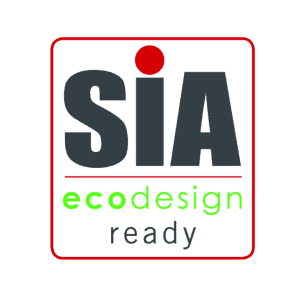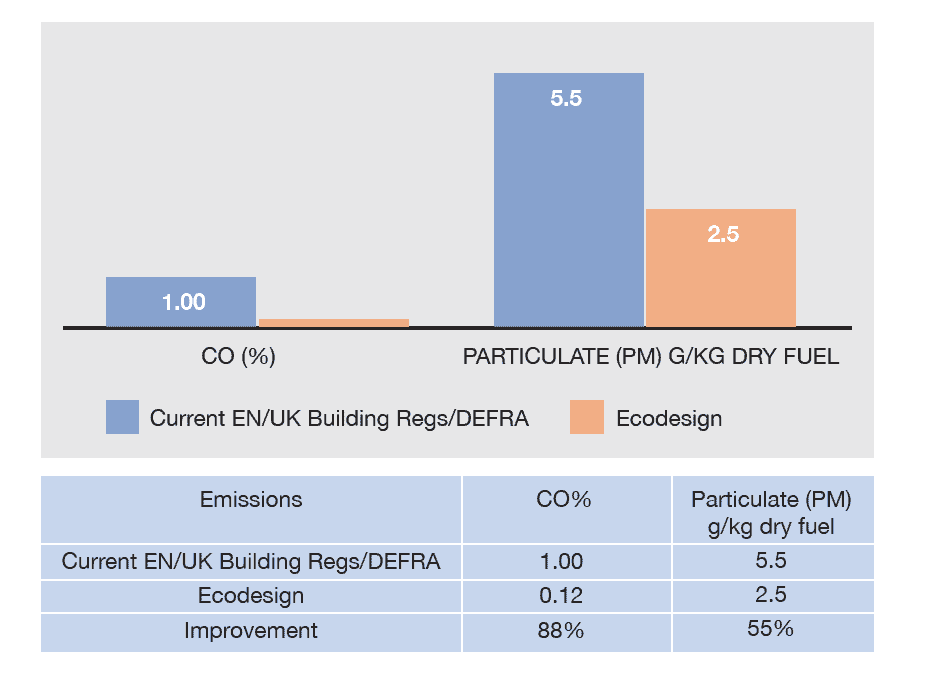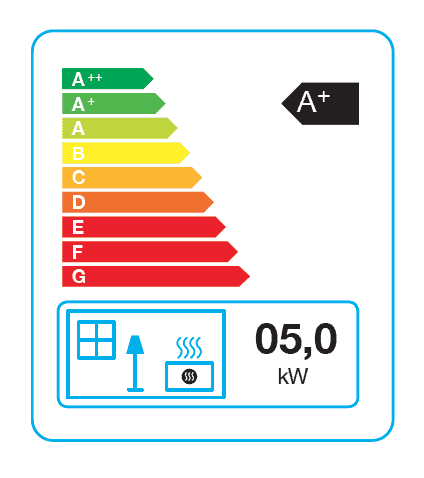 We have spoken about Ecodesign a number of times in recent articles. In this article we look a little more at the implications of Ecodesign on the stove industry.
We have spoken about Ecodesign a number of times in recent articles. In this article we look a little more at the implications of Ecodesign on the stove industry.
Many people are keen to learn, if after Brexit, will Ecodesign still be relevant to the UK. The answer to this is yes. The Great Repeal Bill will bring the Ecodesign and Energy Labelling Directives into UK law.
In its 2015 response to the air quality consultation DEFRA cited Ecodesign as the tool it will use to reduce emissions from solid fuel stoves. Since Brexit DEFRA has confirmed its commitment to Ecodesign, as it will introduce stricter limits on emissions.
Ecodesign is due to be implemented on 1st January 2022 for wood burning and multi fuel stoves. Although much of the attention has been focused on wood burning, the regulations apply to all solid fuel stoves, including boiler stoves.
Having said that, the manufacturer must declare the fuel that will be used in the stove. The designated fuel must be tested with the stove. A multi fuel stove designated to burn coal will have a separate set of results to the same stove with wood. Most manufacturers will declare and test their stoves with wood.
In addition to minimum energy requirements, the regulations will cover a broad range of emissions: Particulate Matter (PM10 & PM2.5), CO2, NOx, OGC (Other gaseous carbon) and CO. The new emission limits are significantly lower and more comprehensive than those required for DEFRA Exemption. The table below illustrates the reduction in emission limits for CO and PM. (NOx and OGC were not measured before Ecodesign). The reduction in the CO limit is 88% and the reduction in PM is 55%.

Based on these reductions it can be seen that Ecodesign will lead to a significant improvement in UK air quality and that it cannot be assumed that a stove will meet the Ecodesign requirements.
The minimum net efficiency levels will effectively increase to 40% for an open fire and to 75% for closed stoves. (The efficiencies are calculated using a calculated “seasonal space heating efficiency”). For stoves, this is a 4% increase in efficiency.
Unlike the requirements for DEFRA Exemption, which only applies to smokeless zones the Ecodesign regulations will apply to the whole country, so no matter where a new stove is to be installed it must comply with Ecodesign. It will be illegal to manufacture and sell new stoves from 1st January 2022 that do not comply with the Ecodesign requirements.
However, stoves that are already in the supply chain (manufacturers’, distributors’, retailers’ warehouses or retailers’ showrooms) can be sold after this date. An Ecodesign Enforcement Team has been set up within the National Measurement Office to verify that products sold comply with the regulations.
In addition, stoves will have to have an energy label. This label is referred to as the Ecolabel. The requirement to display the Ecolabel comes into force before Ecodesign, on 1st January 2018. From that date, all stoves displayed in a retailer’s showroom must be displayed with its Ecolabel. Manufacturers must include a printed label in the stove packaging with a minimum of information in instructions or on a specification sheet.
Advertisements, brochures and technical material must include the A to G energy efficiency class for that model. Similarly, product offers of sale through the Internet must display the energy label. Modern stoves will typically be in band A and A+.

The SIA has decided to introduce stoves, (known as SIA Ecodesign Ready), that will meet the Ecodesign requirements now and from 2020 the main manufacturers will only manufacturer new fireboxes that will satisfy Ecodesign.
Most consumers are currently unaware of the new emissions limits. However, as publicity about Ecodesign increases consumers will be asking for more information, which is a reason why Charlton & Jenrick are very keen to educate readers about Ecodesign.
To view our range of Ecodesign stoves, please click here








